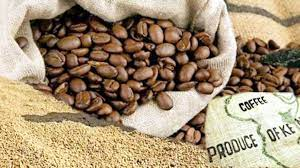Kenya targets to increase coffee production from the current 51,000 metric tones to 81,000 metric tones by lowering the cost of production through subsidizing farm inputs.
This is according to Cooperatives Principal Secretary Patrick Kilemi who says the national government is also working with County Governments to strengthen the extension services to boost coffee production.
Coffee production in Kenya has reduced from a high of 129,637 metric tones in 1988 to a low 36,867 metric tons in 2020.
The government has laid out measures to increase production from the current 51,000 metric tons to 260,000 metric tons by the year 2027.
This is expected to be achieved through a number of measures such as lowering cost of production by subsidising farm inputs, enhancing accessibility of the Cherry Advance Revolving fund, revamping the Coffee Research and strengthening extension services.
The Nairobi Coffee Exchange is next week expected to reopen and operate under the new coffee regulatory framework that saw cooperative banks shrug off competition from eight other banks to win the bid as the provider of the Direct Settlement System technology platform for coffee.
The direct settlement system aims to eliminate intermediaries from the coffee value chain and ensure fair prices for farmers.
So far, 11 coffee co-operative unions have been licensed to sell coffee directly at the Nairobi Coffee Exchange, with plans to licence five more coffee cooperative unions by the end of this month.
By Fred Odanga.
